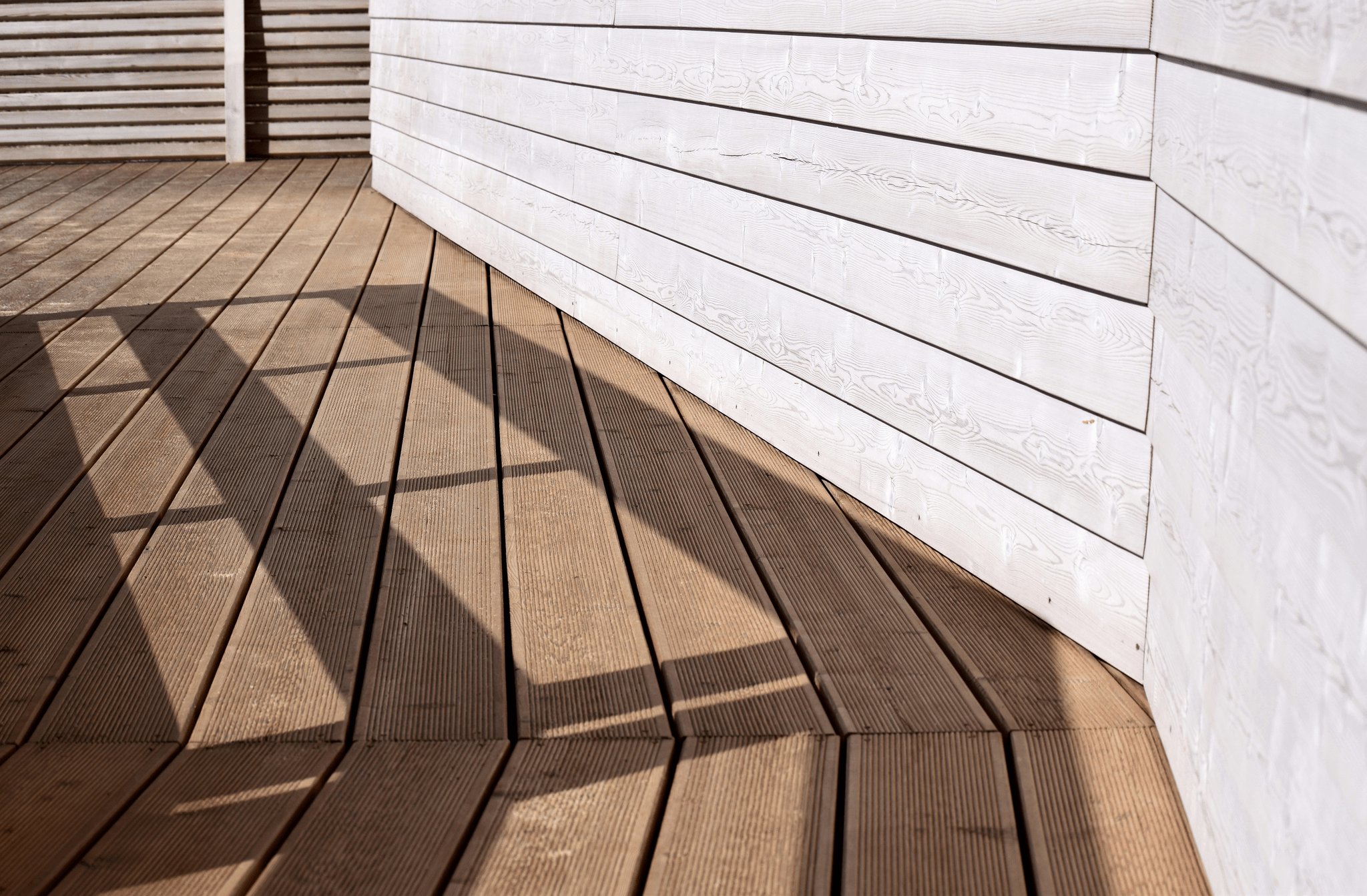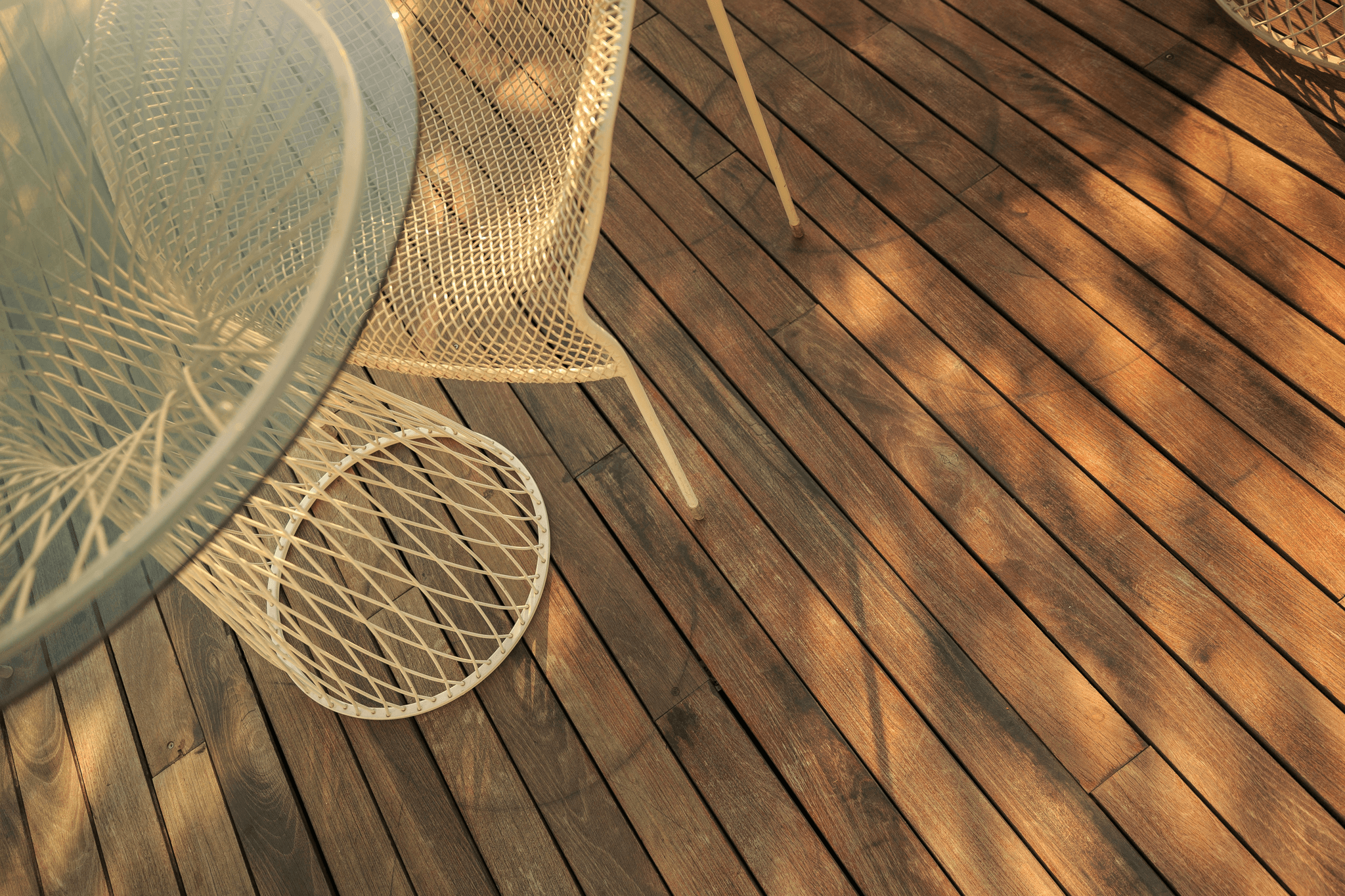Introduction
Understanding Composite Decking Durability
Composite decking is engineered from a blend of wood fibers and recycled plastics, designed to withstand the elements while maintaining its appearance over time. This unique composition contributes to its durability, making it a preferred choice for many homeowners looking for long-lasting outdoor solutions. However, despite its resilience, it’s essential to evaluate how well it stands up against scratches and other wear and tear.
Evaluating Scratch Resistance
One of the primary concerns when considering whether composite decking scratches easily is its scratch resistance capabilities. Industry standards provide benchmarks for evaluating how well different brands perform in real-world conditions. By examining these standards and customer feedback, we can gain insight into which products truly stand out in terms of scratch resistance.
The Impact of Pets on Decking
For pet owners, the question “Will dog nails scratch composite decking?” takes on added significance when choosing the right material for their decks. Dogs love to run around and play outside, which can lead to potential damage if the deck isn’t adequately protected against scratches from their nails. Additionally, understanding what are the disadvantages of composite decking will help pet owners weigh their options effectively while ensuring that their furry friends have a safe space to enjoy.
How Scratch Resistant Is Composite Decking?

When considering whether composite decking is right for your home, one of the burning questions is, does composite decking scratch easily? The answer lies significantly in the material composition and the standards set by industry testing. Understanding these factors can help you make an informed decision about your outdoor living space.
Examining Material Composition
Composite decking typically consists of a blend of wood fibers and recycled plastic materials, which gives it a unique resilience against scratches. The combination creates a surface that is not only aesthetically pleasing but also more durable than traditional wood decks. However, the specific formulation can vary by manufacturer, leading to differences in performance when it comes to scratching.
For instance, some brands utilize high-density polyethylene (HDPE) or polyvinyl chloride (PVC) in their products, which are known for their superior scratch resistance. This leads many pet owners to wonder: Will dog nails scratch composite decking? While no surface is entirely impervious to damage, a well-constructed composite deck can withstand everyday wear and tear caused by pets and outdoor activities better than most wood options.
Industry Standards for Scratch Resistance
To ensure that consumers receive quality products, various industry standards have been established to measure scratch resistance in composite decking materials. These standards often include tests that simulate everyday use scenarios—think heavy furniture being dragged across the surface or enthusiastic pets running around. If you're asking yourself what are the disadvantages of composite decking? One potential drawback could be variability in how different brands meet these standards.
The ASTM (American Society for Testing and Materials) often provides guidelines on evaluating materials' durability under simulated conditions. Products that pass these tests typically boast higher ratings for scratch resistance, giving consumers confidence that they won't have to constantly worry about scratches ruining their outdoor aesthetic.
Real-World Performance Cases
Real-world performance cases provide invaluable insight into how well composite decking holds up over time against scratches and other damages. Reviews from dog owners frequently highlight that while no flooring option is completely immune from scratches, high-quality composite decks fare much better than traditional wood alternatives.
Consider a family with an active dog; they might initially wonder: Does composite decking scratch easily? After several years of use—including countless games of fetch—the owner may find minimal scratching compared to what would have occurred with wooden planks exposed to similar conditions. Thus, understanding both material composition and real-world experiences can guide you toward making choices that fit your lifestyle while keeping your deck looking great.
Does Composite Decking Scratch Easily?

When considering whether composite decking scratches easily, it’s essential to sift through the noise of misinformation. Many homeowners worry about the durability of their outdoor spaces, especially when pets are involved. The truth is that while no material is completely scratch-proof, composite decking generally holds up well against everyday wear and tear.
Common Debunked Myths
One prevalent myth is that all composite decking scratches easily, which simply isn’t true. In reality, many brands have made significant advancements in scratch resistance technologies, making them more robust than traditional wood decking. Another misconception is that only dogs with long nails can cause damage; however, even smaller pets can be surprisingly gentle on high-quality composite materials.
Moreover, some believe that if you use a specific type of furniture or décor on your deck, it will inevitably lead to scratches. This isn’t necessarily the case; with proper care and precautions in place, such as using protective pads under furniture legs, you can minimize potential damage significantly. It’s crucial to separate fact from fiction when evaluating how does composite decking scratch easily.
Customer Experiences and Feedback
Customer feedback often paints a varied picture regarding the question of whether composite decking scratches easily. Many users report satisfaction with their choice of composite materials due to their resilience against both pet activity and environmental factors. Reviews frequently highlight experiences where dog owners found their decks remained largely unscathed despite regular use by their furry friends.
However, some customers do share concerns about scratching after years of exposure to harsh elements or heavy foot traffic—suggesting that while these decks are durable, they still require some level of maintenance and care over time. This raises questions about what are the disadvantages of composite decking? Users must weigh these considerations alongside the benefits for an informed decision.
Impact of Environmental Factors
Environmental factors play a significant role in determining how well your deck withstands scratches over time. For instance, exposure to extreme weather conditions—like intense sunlight or heavy rain—can affect the surface integrity of certain types of composite materials. Additionally, debris such as gravel or sand blown onto your deck can act like sandpaper if not promptly cleaned up.
Moreover, seasonal changes may also influence how does composite decking scratch easily; freezing temperatures followed by thawing can cause expansion and contraction in some products leading to micro-scratches or surface blemishes over time. To mitigate these effects and ensure longevity for your outdoor space—especially if you’re concerned about whether dog nails will scratch composite decking—it’s essential to adopt preventive measures tailored to your environment.
Will Dog Nails Scratch Composite Decking?

Understanding Pet Behavior
Dogs are naturally curious and playful creatures; they love to run, jump, and explore their surroundings. This playful behavior can sometimes lead to scratching surfaces as they dash around or dig at the ground. When considering whether composite decking will hold up against such antics, it's crucial to remember that while dog nails can leave marks, the extent largely depends on the type of composite material used and the intensity of your dog's activities.
Many pet owners wonder: does composite decking scratch easily? The answer is nuanced; while some lower-quality composites may not withstand heavy scratching well, higher-end options tend to resist damage more effectively. So if you have a rambunctious pup who loves sprinting across your deck, investing in a durable product could save you from future headaches.
Reviews from Dog Owners
Dog owners frequently share their experiences regarding whether composite decking scratches easily due to canine claws. Many users report that high-quality composite materials withstand daily wear and tear remarkably well, even with multiple pets roaming freely. However, there are also accounts where cheaper alternatives have shown noticeable scratches after prolonged exposure to sharp dog nails.
In general, reviews indicate that while no surface is entirely scratch-proof—especially under enthusiastic paws—most pet parents find that their composite decks hold up quite nicely over time. Some even note that regular maintenance and care can significantly enhance the longevity of their decks against scratches from dog nails or other potential culprits like furniture legs or garden tools.
Product Recommendations for Pet Owners
For those concerned about potential damage from pets on their outdoor surfaces, selecting the right kind of composite decking is key. Look for products specifically marketed as scratch-resistant; these typically utilize advanced technologies designed for durability without sacrificing aesthetics. Brands like Trex or TimberTech often receive high marks for resilience against both everyday use and playful pets.
Additionally, exploring protective options can further safeguard your investment in outdoor living spaces. Using rugs or mats in high-traffic areas can help reduce direct contact between sharp claws and your deck surface while also adding comfort underfoot for both humans and pets alike. Remember: when asking yourself what are the disadvantages of composite decking compared to traditional wood options regarding pets—it's mainly about striking a balance between cost versus longevity—and finding products that cater specifically to households with furry friends.
What Are the Disadvantages of Composite Decking?

While composite decking is often praised for its durability and low maintenance, it’s not without its drawbacks. Homeowners should be aware of certain trade-offs that come into play when choosing this material over traditional wood. Understanding these disadvantages can help you make a more informed decision about your outdoor living space.
Addressing the Trade-offs
One of the primary concerns when considering composite decking is its potential to scratch easily, especially if you have pets or kids running around. Although many brands claim to be scratch-resistant, they may still show signs of wear over time, particularly in high-traffic areas or under constant use. Additionally, while some products are designed to withstand pet nails, questions remain: will dog nails scratch composite decking? The answer varies by brand and product quality.
Cost vs. Longevity
When weighing the cost versus longevity of composite decking, it’s essential to recognize that while initial prices may be higher than wood alternatives, long-term savings can balance it out. However, if your budget is tight, you might find yourself questioning whether investing in composite materials is worth it—especially if you’re concerned about whether composite decking scratches easily or not. Furthermore, some lower-end options may not hold up as well against scratches and other forms of damage compared to premium brands.
Maintenance and Care Considerations
While one of the appeals of composite decking is its low maintenance nature compared to traditional wood, it's important to note that it still requires some care to maintain its appearance and functionality over time. Regular cleaning is necessary to prevent dirt buildup and staining from environmental factors; neglect could lead to scratching or fading issues down the line. If you're pondering how do you protect composite decking from scratches effectively? Simple measures like using mats in high-traffic areas or avoiding dragging heavy furniture can go a long way.
What Composite Decking Does Not Scratch?

Top Brands to Consider
Several brands stand out in the realm of scratch-resistant composite decking. Trex, TimberTech, and Fiberon are frequently hailed as industry leaders due to their robust formulations that resist scratches and wear. These brands have developed products specifically designed with durability in mind, making them ideal choices if you're asking yourself, Does composite decking scratch easily?
Each brand offers unique features that cater to different needs and preferences. For instance, Trex's high-performance lines boast a protective shell that enhances both scratch resistance and overall longevity. Meanwhile, TimberTech's advanced materials provide exceptional fade resistance alongside their impressive scratch-proof capabilities.
Innovative Technologies in the Market
The latest innovations in composite decking technology are game-changers when it comes to durability and maintenance. Many manufacturers now incorporate advanced polymer coatings that make surfaces tougher against scratches while maintaining an attractive appearance. This means you can enjoy your outdoor space without constantly worrying about whether dog nails will leave their mark or if your deck will suffer from everyday wear and tear.
Moreover, some brands utilize proprietary manufacturing processes that enhance the material's structural integrity, making it less susceptible to scratching from heavy furniture or playful pets. If you've been pondering What are the disadvantages of composite decking?, you'll be pleased to learn that many of these innovative technologies effectively mitigate common concerns associated with traditional materials.
Why Composite Decking Inc Stands Out
Among the plethora of options available on the market today, Composite Decking Inc has carved out a niche for itself due to its commitment to quality and innovation. Their products are designed not only for aesthetics but also with an emphasis on long-lasting performance—making them an excellent choice if you're concerned about how easily your deck might scratch over time.
What sets Composite Decking Inc apart is its rigorous testing standards for scratch resistance; they ensure their products can handle everything from rambunctious pets (yes, we’re looking at you—dog owners!) to harsh weather conditions without compromising on style or function. So before you ask yourself again Will dog nails scratch composite decking?, consider this brand as a reliable choice for pet-friendly outdoor solutions.
In summary, when searching for what composite decking does not scratch easily, exploring leading brands like Trex, TimberTech, Fiberon—and especially Composite Decking Inc—can lead you toward making an informed decision that aligns with your lifestyle needs while embracing outdoor living with confidence.
How Do You Protect Composite Decking from Scratches?

Protecting your composite decking from scratches is crucial, especially if you’re wondering, “Does composite decking scratch easily?” While composite materials are designed to be durable, they can still be susceptible to scratches under certain conditions. By implementing some straightforward maintenance tips and protective measures, you can keep your deck looking pristine for years to come.
Practical Tips for Maintenance
One of the best ways to ensure that your composite decking remains scratch-free is through regular maintenance. Start by sweeping away dirt and debris that could cause scratches when walked on or moved around. Additionally, using a soft-bristle broom or a leaf blower can help keep the surface clean without risking damage.
Another tip is to avoid dragging heavy furniture across the deck; instead, lift items when moving them. This simple practice can significantly reduce the risk of scratching and prolong the life of your decking material. Lastly, consider placing mats in high-traffic areas where scratches might occur frequently—this not only protects the surface but also adds style!
Recommended Protective Products
To further shield your composite decking from potential scratches, consider investing in protective products specifically designed for this purpose. For instance, furniture pads made from soft rubber or felt can be placed under chairs and tables to prevent scratching when they’re moved around—a small investment for a big impact!
Additionally, there are specialized sealants available that provide an extra layer of protection against wear and tear while enhancing the appearance of your deck. These products can help answer questions like “What composite decking does not scratch?” by creating a barrier that minimizes damage risks.
Strategies for Long-Term Care
Long-term care strategies play a crucial role in maintaining the integrity of your composite decking over time. Regular inspections should be part of your routine; check for signs of wear or damage that could lead to more significant issues down the line. If you have pets and are concerned about “Will dog nails scratch composite decking?”, keeping their nails trimmed will help mitigate potential scratching.
Moreover, applying a protective coating every few years can rejuvenate your deck's surface while providing added resistance against scratches and fading caused by UV exposure—an essential step if you're pondering “What are the disadvantages of composite decking?” With these strategies in place, you'll enjoy outdoor living with confidence!
Conclusion
In wrapping up our exploration of composite decking, it’s essential to highlight the key factors surrounding its scratch resistance. Many homeowners wonder, Does composite decking scratch easily? The answer is nuanced; while it's generally more resistant than traditional wood, certain conditions can still lead to scratches. Understanding these details can help you make informed choices for your outdoor spaces.
Key Takeaways on Scratch Resistance
When considering whether will dog nails scratch composite decking?, it’s crucial to remember that not all composite materials are created equal. Some brands utilize advanced technologies that enhance durability and scratch resistance, making them better suited for homes with pets. However, it’s wise to evaluate the specific product and its reviews before making a purchase, especially if you have furry friends who love to run around.
Making an Informed Choice
As you ponder “what are the disadvantages of composite decking?”, remember that while it offers many benefits like low maintenance and longevity, there are trade-offs to consider as well. Cost is often a significant factor; premium options may come with a higher price tag but can save money in the long run due to their durability. It's important to weigh these considerations carefully against your lifestyle needs and budget.
Embracing Outdoor Living with Confidence
Finally, knowing “how do you protect composite decking from scratches?” will empower you as a homeowner looking to maintain your outdoor area beautifully. Regular cleaning and using protective mats in high-traffic areas can significantly extend the life of your deck's surface. With proper care and informed choices about which products endure wear and tear best—especially those that don’t scratch easily—you can fully enjoy your outdoor living space without worry.
